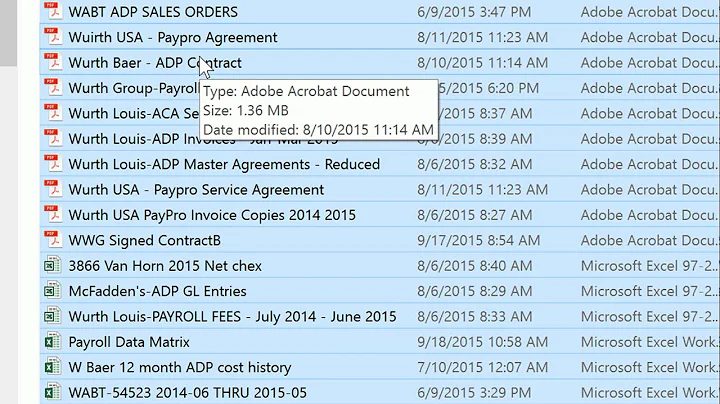What is the most efficient way to move a large number of files that reside in a single directory?
Solution 1
Taking advantage of GNU mv's -t option to specify the target directory, instead of relying on the last argument:
find . -name "*" -maxdepth 1 -exec mv -t /home/foo2/bulk2 {} +
If you were on a system without the option, you could use an intermediate shell to get the arguments in the right order (find … -exec … + doesn't support putting extra arguments after the list of files).
find . -name "*" -maxdepth 1 -exec sh -c 'mv "$@" "$0"' /home/foo2/bulk2 {} +
Solution 2
Just for variety, I'm fond of using cpio for some cases like this.
find tmp |cpio -v -p --make-directories --sparse tmp2
Related videos on Youtube
Mike B
Updated on September 18, 2022Comments
-
 Mike B over 1 year
Mike B over 1 yearCentOS 5.x
I apologize if this is a repeat question. I've seen a lot of similar questions (regarding deleting files) but not exactly the same scenario.
I have a directory containing hundreds of thousands of files (possibly over a million) and as a short-term fix to a different issue, I need to move these files to another location.
For the purpose of discussion, let's say the these files originally reside in
/home/foo/bulk/and I want to move them to/home/foo2/bulk2/If I try
mv /home/foo/bulk/* /home/foo2/bulk2/I get a "too many arguments" error.Mr. Google tells me that an alternative for deleting files in bulk would be to run find. Something like:
find . -name "*.pdf" -maxdepth 1 -print0 | xargs -0 rmThat would be fine if I was deleting stuff but in this case I want to move the files... If I type something like
find . -name "*" -maxdepth 1 -print0 | xargs -0 mv /home/foo2/bulk2/bash complains about the file not being a directory.What's the best command to use here for moving the files in bulk from one directory to another?
-
pabouk - Ukraine stay strong over 10 yearsIf the source and destination are on the same file system then this approach could be very inefficient (unnecessary copying). Also it is always better to use
-print0and-0options. -
Batfan over 10 yearsYou can use find ... -exec sh -c 'blah "$@" blah' sh {} +" (the "shell trick") to deal with issues around argument ordering. There are several examples of this in the findutils (info) documentation; search for "sh -c".
-
 David Beauchemin over 3 yearsI will add to the solution: do it from the directory
David Beauchemin over 3 yearsI will add to the solution: do it from the directory/home/foo/bulk/.




